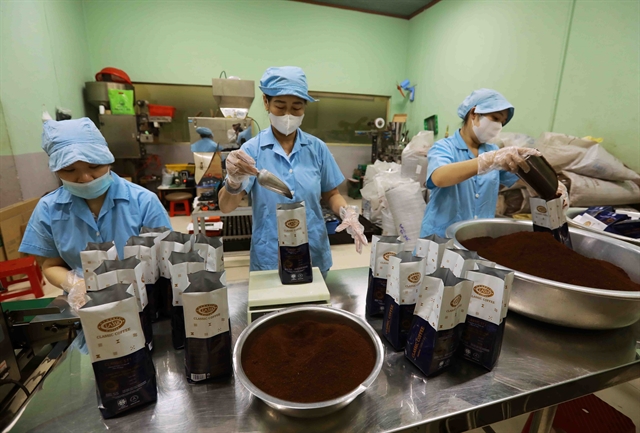 Economy
Economy

 |
| Workers packaging powdered coffee at a factory in Pleiku City, Đắk Lắk Province. — VNA/VNS Photo Vũ Sinh |
HÀ NỘI — Việt Nam needs to adopt various solutions, particularly those to improve the quality of human resources to increase productivity, in order to achieve the 2024 growth target set by the National Assembly, said Nguyễn Thị Hương, head of the General Statistics Office (GSO).
The legislature sets the goals that the national GDP would grow 6-6.5 per cent in the year, and GDP per capita would stand at between US$4,700 and $4,730. The processing and manufacturing industry is also projected to account for 24.1-24.2 per cent of the GDP.
To boost the domestic processing and manufacturing industry, the workforce must satisfy requirements, Hương explained, elaborating that the rate of trained workers should stay at about 69 per cent, of whom those with degrees and certificates range between 28 per cent and 28.5 per cent.
The official viewed productivity as a decisive factor in improving the competitiveness of the national economy and each enterprise, saying it plays a crucial role in boosting long-term economic growth.
It becomes even more important given the crunch of capital, land, and natural resources, and workforce affected by population aging, she continued.
According to the GSO, increasing productivity depends on different factors like consumption demand, production capital, wage, bonuses, science-technology, innovation, institutions, policies, and production structure, along with the factors associated with natural conditions and personnel quality with the latter playing a key role.
Besides, scientific and technological advances require labourers to have higher qualifications in order to optimise production, Hương said, stressing the need to improve training quality to meet requirements of businesses. — VNS




